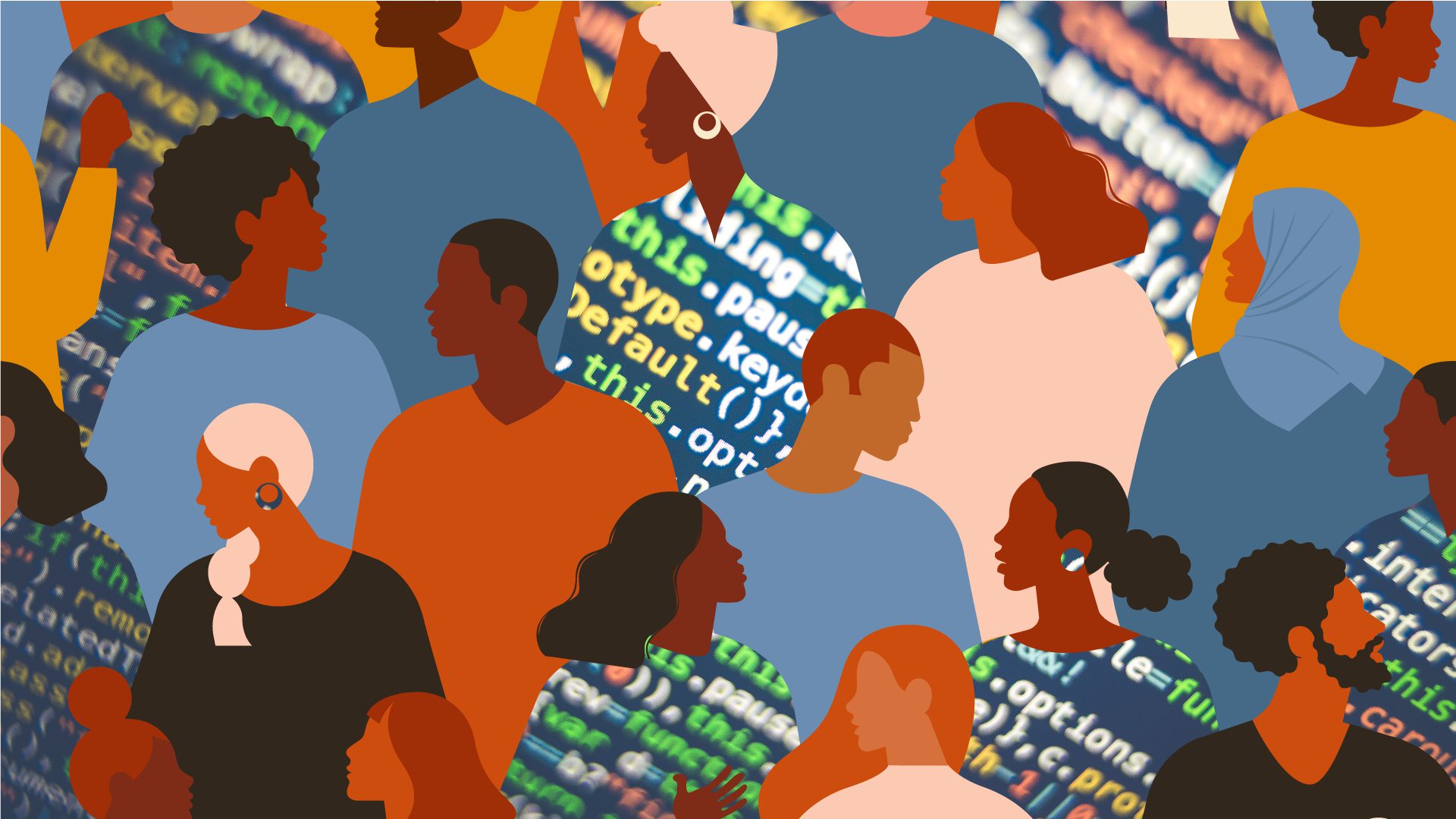- April 16, 2021
- By Jessica Weiss ’05
A $4.8 million grant from The Andrew W. Mellon Foundation will fund a new lab at the University of Maryland to facilitate research and scholarship at the intersection of race and technology, and to develop a pipeline program to introduce undergraduates and those in the local community to the field of Black digital studies.
The Black Communication and Technology (BCaT) Lab is part of a new multi-institutional project led in part by UMD Assistant Professor of Communication Catherine Knight Steele that seeks to work toward an “equitable digital future” through engaging in research on topics like racial inequality, disability justice and Black digital spaces.
The Mellon Foundation grant to the University of Michigan, which is leading the project, will create the Digital Inquiry, Speculation, Collaboration, & Optimism (DISCO) network, a collective of six scholars at institutions across the country.
Steele’s focus, Black digital studies, encompasses the ways that technology—both its possibilities and impediments it can create—impacts African Americans.
“In this political climate and our post-COVID world, it’s exactly the time for a project like this,” said Steele, who is collaborating with Lisa Nakamura and Remi Yergeau of the University of Michigan, André Brock of the Georgia Institute of Technology, Rayvon Fouché of Purdue University and Stephanie Dinkins of SUNY Stony Brook University on the grant.
As with the BCaT Lab, partners will leverage their areas of expertise to establish new research hubs, courses and more at their institutions, and will share best practices through monthly meetings.
At UMD, the BCaT Lab will develop a program model to introduce undergraduates to digital research through workshops and coursework, help students carry out graduate research and create a mentoring network for students and faculty to navigate Black digital studies, focusing on collaboration across generations of researchers.
“In addition to teaching how to do research in race and technology, the BCaT Lab will explore how to create an effective pipeline of people of color working in the field,” Steele said. “How do we create and sustain a network of scholars who have adequate support, quality instruction and access to mentoring and advising, to move the field in a productive new direction?”
Eventually, Steele hopes to introduce students in Prince George’s County high schools to the field of Black digital studies and encourage future scholarship.
Steele was the founding director of the Andrew W. Mellon funded African American Digital Humanities (AADHUM) initiative at Maryland, which brings together the fields of African American studies and digital humanities in order to expand upon both fields, making the digital humanities more inclusive of African American history and culture while enriching African American studies research with new methods, archives and tools.
Her forthcoming book, “Digital Black Feminism,” examines the relationship between Black women and technology over the centuries in the U.S.
The BCaT Lab will be up and running in Fall 2021, working with undergraduate and graduate students and hosting events, Steele said. A postdoctoral fellow will begin in the lab next year.
Topics
Research